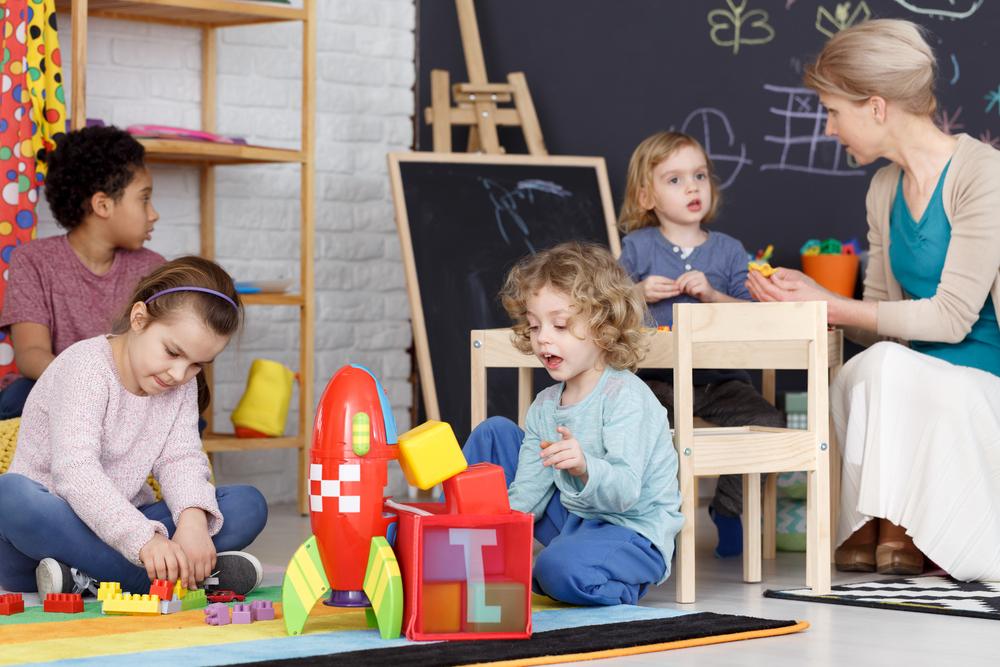How Childcare Centers Support Busy Families and Enhance Child Development
Childcare centers are vital for modern working families, providing safe, nurturing, and educational environments for young children. They support parents by offering structured routines, social skill development, and early learning opportunities, ensuring children are well-prepared for school and life. This in-depth article explores how these centers cater to the needs of busy parents while fostering healthy child development, making them indispensable in urban life. Discover the comprehensive benefits of childcare centers and how they serve as essential partners in fostering the growth of the next generation.

Childcare Centers: Essential Support for Modern Working Families
The Role of Childcare Centers in Modern Parenting
Navigating the challenges of balancing a busy professional life with family responsibilities has become increasingly complex in today’s fast-paced society. For many working parents, especially in urban environments, finding a reliable and quality childcare facility is not just a matter of convenience but a necessity. Childcare centers have emerged as vital institutions that not only provide safety and care for young children but also support their overall development, helping parents meet their career and family commitments seamlessly. This article delves into the multifaceted benefits of childcare centers, their evolution over recent decades, and how they play an indispensable role in contemporary parenting.
Defining Childcare Centers and Their Functions
A childcare center is a dedicated facility that offers comprehensive care for infants, toddlers, preschoolers, and early childhood-aged children. Unlike preschools that primarily focus on formal education, childcare centers tend to prioritize caregiving, emotional safety, and daily routines alongside early educational activities. They serve as a safe haven for children while parents are at work, providing structured environments that foster both development and well-being. Staff members in these centers are specially trained to nurture young children, ensuring their physical safety, emotional security, and social growth.
Many people often confuse childcare centers with preschools; however, their core focus differs significantly. Preschools generally operate for only a few hours each day and emphasize early academic skills, whereas childcare centers tend to operate throughout the day—from early morning until evening—to accommodate working parents’ schedules. This continuous care model ensures that children are supervised, engaged, and nurtured throughout the day, providing parents with peace of mind and reliability. Childcare centers are designed to support the daily routines of working families, making them essential components of modern urban life.
Addressing the Needs of Working Parents
Historically, societal norms often designated women as the primary caregivers, keeping them at home. However, shifting perspectives and economic dynamics have led to increased participation of women in the workforce. Consequently, the landscape of childcare has transformed dramatically to meet this demand. Today, many parents, especially working mothers and fathers, rely on childcare centers not only to keep their children safe but also to promote healthy development and early learning experiences. As urbanization increases and life becomes busier, proximity and convenience become critical factors in choosing childcare options. Many parents prefer centers that are located close to their homes or workplaces to minimize transit time and ensure flexible scheduling.
So, what are the key benefits of enrolling children in a quality childcare center? Let’s explore these advantages in depth:
Ensures Peace of Mind: Parents can concentrate on their careers with confidence, knowing that their children are in safe hands with trained caregivers who provide attentive supervision and emotional support.
Establishes Routine and Discipline: Childcare centers promote structured daily routines that help children develop discipline, self-regulation, and a sense of security. Consistent schedules foster reliability and predictability, which are essential for young children’s emotional stability.
Facilitates Social Skills Development: Regular interaction with peers and adult caregivers helps children develop communication, cooperation, and conflict resolution skills. These social interactions are foundational for emotional intelligence and empathy, reducing dependence solely on parents for social development.
Prepares Children for Formal Education: Exposure to a structured environment with planned activities and learning opportunities smooths the transition into kindergarten and primary school. Early familiarity with classroom routines and expectations helps children adapt quickly and confidently to formal education settings.
Provides Early Educational Exposure: Many centers incorporate basic lessons in language, mathematics, science, and arts, igniting curiosity and laying the groundwork for future academic achievement. These early experiences are crucial for cognitive development and literacy skills.
In today’s dynamic world, where time is a precious commodity and parenting responsibilities are demanding, childcare centers are invaluable assets for working families and single parents alike. They offer comprehensive support—safety, education, socialization—that benefits not only the children but also alleviates parental stress and enhances work-life balance. By investing in quality childcare, families set their children on a path of healthy development, ensuring they are well-prepared for future academic and social challenges. Ultimately, childcare centers serve as trusted partners in modern parenting, fostering growth and stability for families navigating the complexities of contemporary life.





